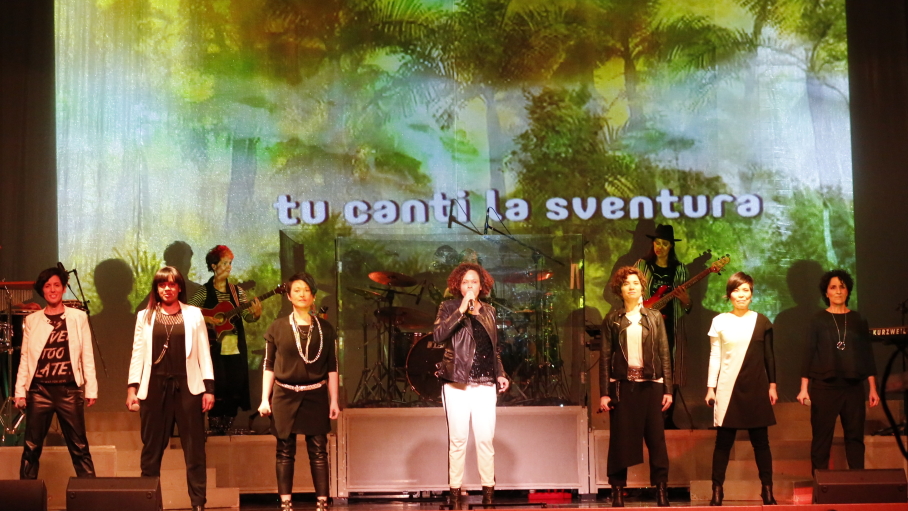
Mar 13, 2016 | Non categorizzato
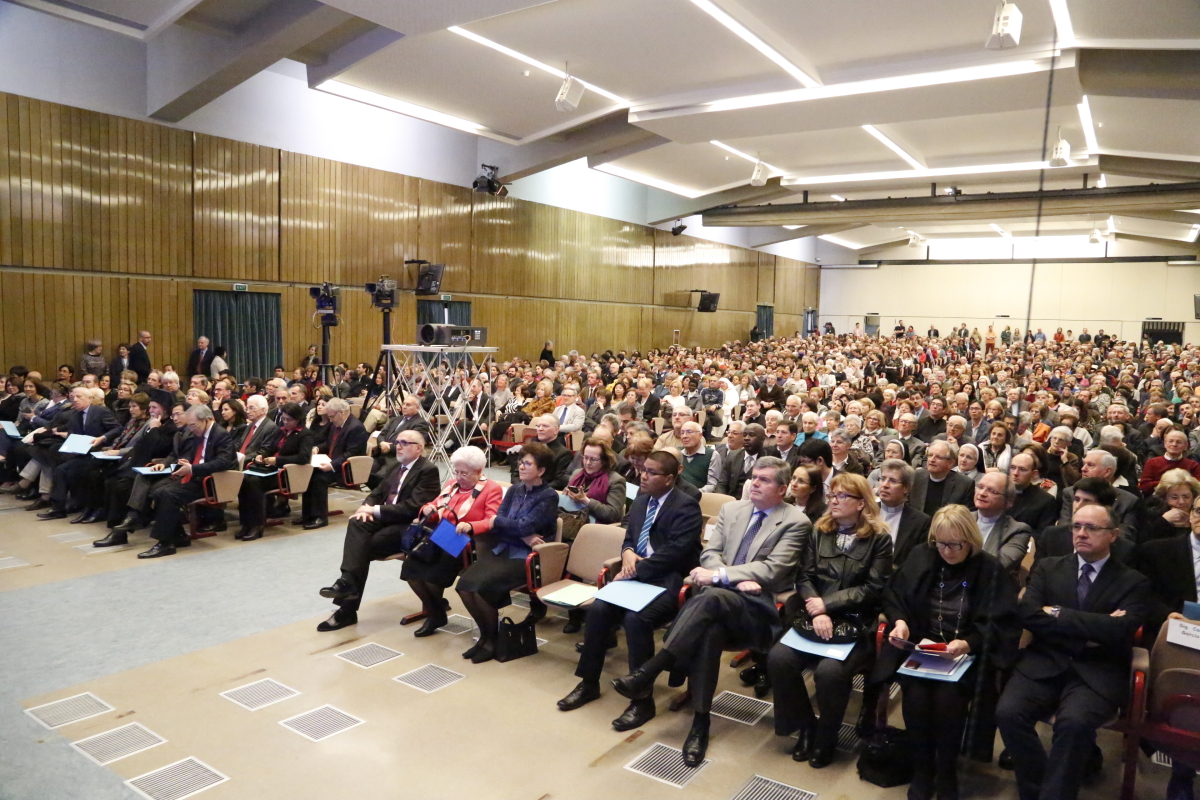 The spirituality of unity born of Chiara Lubich holds a strong relevance for peace. This was the main message of an event at Castel Gandolfo, Italy, on March 12, 2016 at which people came together to reconsider the heritage of Chiara Lubich in the field of peace building. In attendance were ambassadors and representatives of the diplomatic corps to the Holy See and to the Italian State from 20 countries: Morocco, Libya, Benin, Gabon Turkey, Taiwan, Argentina, Venezuela, Cuba, Uruguay, Paraguay, USA, Guatemala, and several European nations like Ukraine, Lithuania, Albania, Slovenia, Portugal and Malta.
The spirituality of unity born of Chiara Lubich holds a strong relevance for peace. This was the main message of an event at Castel Gandolfo, Italy, on March 12, 2016 at which people came together to reconsider the heritage of Chiara Lubich in the field of peace building. In attendance were ambassadors and representatives of the diplomatic corps to the Holy See and to the Italian State from 20 countries: Morocco, Libya, Benin, Gabon Turkey, Taiwan, Argentina, Venezuela, Cuba, Uruguay, Paraguay, USA, Guatemala, and several European nations like Ukraine, Lithuania, Albania, Slovenia, Portugal and Malta. 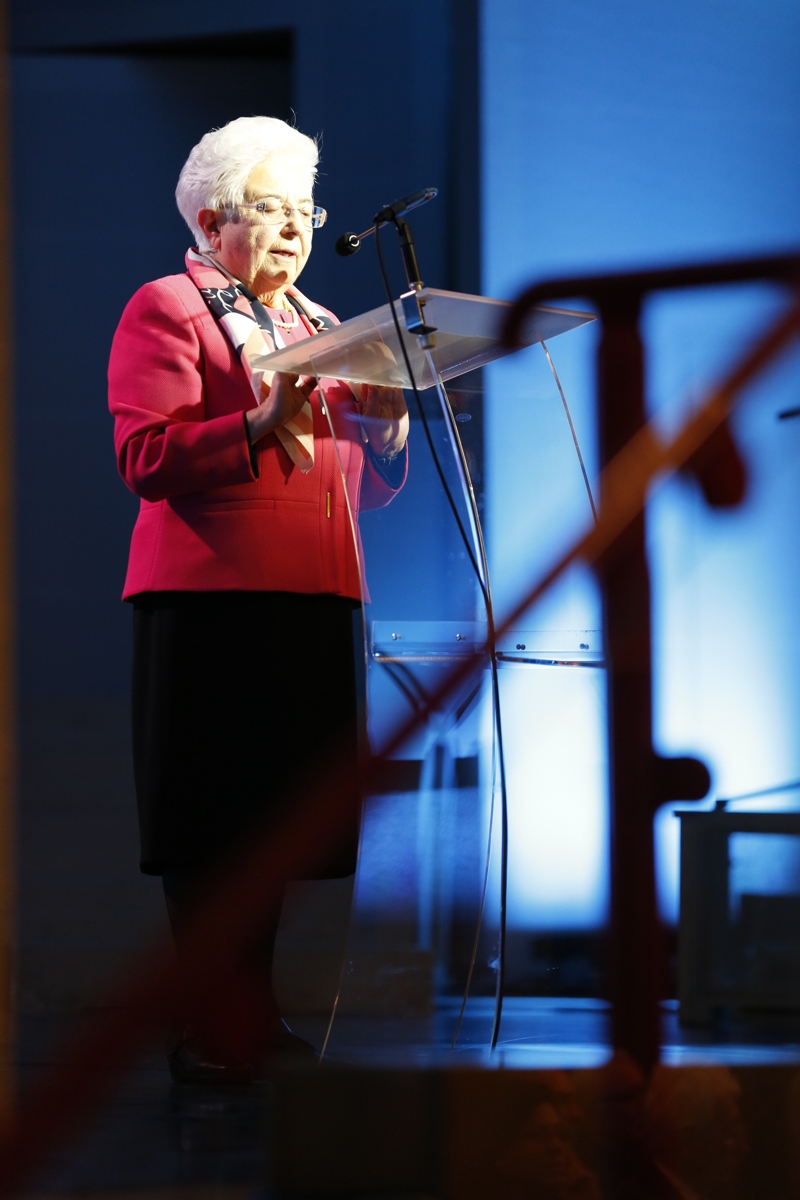 Yet, the current picture which imposes itself on our gaze offers images of a “a peace that is violated and often derided” leading us to believe that “the generations of the Third Millennium will never have an experience of life together in peace.” These were the words of Focolare president, Maria Voce in her welcoming remarks. How can we retie the broken thread of human relationships among peoples and States? “At the UNESCO headquarters, Chiara Lubich had presented a method of Peace Education,” Maria Voce recalled. It was the spirituality of unity, which lays the foundations for a culture of dialogue. This was demonstrated by 4 experiences: the simplicity of the Cube of Peace which became the basis for the development of Living Peace, a project in Cairo schools that has reached 300 schools in 110 countries involving an additional 1000 children and teenagers; dialogue between Christians and Muslims in Italy against the backdrop of tension that spreads across the continent; the “miraculous” story of Fontem, Cameroon, in which Chiara Lubich foresaw the future unity amongst the peoples foreshadowed in a pact that was sealed between the chiefs of the two tribes; and then her grand dream of influencing society through culture and thought, which has led to the founding of the Sophia University Institute, Loppiano, Italy.
Yet, the current picture which imposes itself on our gaze offers images of a “a peace that is violated and often derided” leading us to believe that “the generations of the Third Millennium will never have an experience of life together in peace.” These were the words of Focolare president, Maria Voce in her welcoming remarks. How can we retie the broken thread of human relationships among peoples and States? “At the UNESCO headquarters, Chiara Lubich had presented a method of Peace Education,” Maria Voce recalled. It was the spirituality of unity, which lays the foundations for a culture of dialogue. This was demonstrated by 4 experiences: the simplicity of the Cube of Peace which became the basis for the development of Living Peace, a project in Cairo schools that has reached 300 schools in 110 countries involving an additional 1000 children and teenagers; dialogue between Christians and Muslims in Italy against the backdrop of tension that spreads across the continent; the “miraculous” story of Fontem, Cameroon, in which Chiara Lubich foresaw the future unity amongst the peoples foreshadowed in a pact that was sealed between the chiefs of the two tribes; and then her grand dream of influencing society through culture and thought, which has led to the founding of the Sophia University Institute, Loppiano, Italy.  Gen Verde also spoke from the stage of the Mariapolis Centre in Castel Gandolfo. Their songs from the new On the Other Side Show sing the same stories: the sacrifice of the monks in Tibhirine, Algeria, the lullaby for the nameless child who drowned during one of many voyages of hope, Salvadoran bishop Oscar Romero’s voice for truth, now Blessed, murdered at the hand of a criminal, the cry of the Amazon forest that impoverishes us all. Gen Verde works to build peace in its many workshops for thousands of young people. Those young people choose to be the first sprouts of a new people wherever they find themselves, the sprouts of a more supportive world for the smallest and poorest. This is what Chiara had said at UNESCO when she spoke of a “united world” and she also told how to do it: having courage to suffer, accepting the suffering and fatigue that it requires. “If more people accepted suffering out of love, the suffering demanded by love,” Chiara said, “that would be the most powerful arm for giving back humanity its true dignity: not that of a collection of peoples, one next to the other, often at war – but one people.”
Gen Verde also spoke from the stage of the Mariapolis Centre in Castel Gandolfo. Their songs from the new On the Other Side Show sing the same stories: the sacrifice of the monks in Tibhirine, Algeria, the lullaby for the nameless child who drowned during one of many voyages of hope, Salvadoran bishop Oscar Romero’s voice for truth, now Blessed, murdered at the hand of a criminal, the cry of the Amazon forest that impoverishes us all. Gen Verde works to build peace in its many workshops for thousands of young people. Those young people choose to be the first sprouts of a new people wherever they find themselves, the sprouts of a more supportive world for the smallest and poorest. This is what Chiara had said at UNESCO when she spoke of a “united world” and she also told how to do it: having courage to suffer, accepting the suffering and fatigue that it requires. “If more people accepted suffering out of love, the suffering demanded by love,” Chiara said, “that would be the most powerful arm for giving back humanity its true dignity: not that of a collection of peoples, one next to the other, often at war – but one people.”
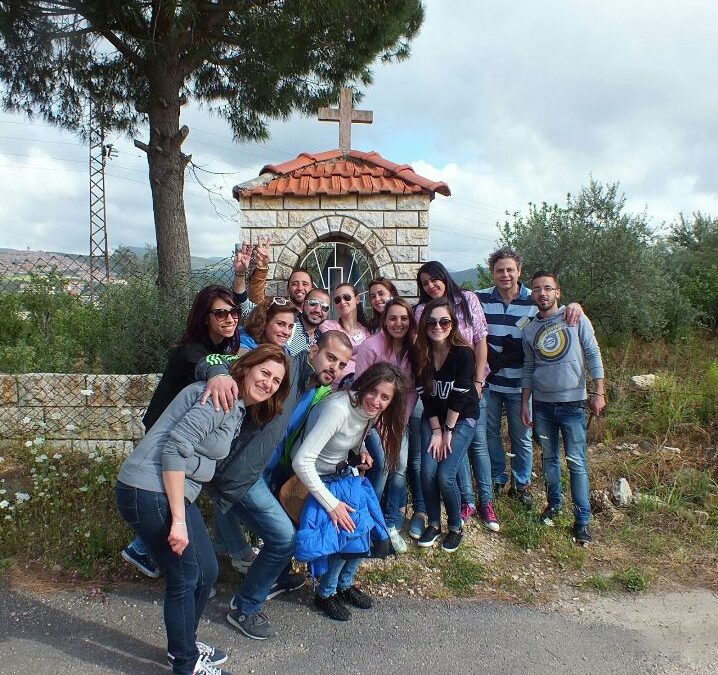
Mar 12, 2016 | Focolare Worldwide
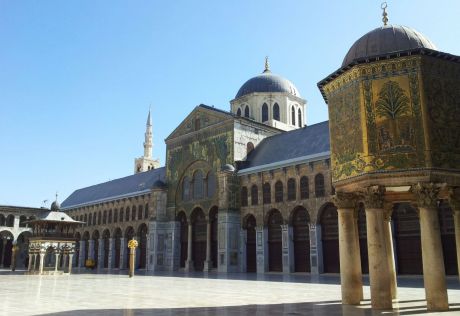 Aleppo, March 8, 2016. I woke up at four in the morning to the sound of bombs and wasn’t able to go back to sleep. I tried not to believe my ears. No, it can’t be true, Lord! More bombings! Just as we were beginning to hope things would get better, that the electricity had returned after 5 months and the water after 45 days! Why? This ceasefire was supposed to last and become permanent! My pleadings rose from the depths of my soul to the Lord of History, asking that this truce which was announced a week ago for all Syria would become permanent. But the sound of fighting on the frontlines that divide the city of Aleppo in two only increased, with the sound of loud explosions that are easily heard at night. While waiting for the sun to rise and for calm to return, as I continued praying I thought: “Of course, we all want Peace, but do we really believe or think that it is achieved at such a high price? There are people who think that war is the path to follow! They’re prepared to sacrifice not only their own lives, but also those of others because they believe this. And there are powers that make a profit on everything that’s happening, so they don’t want the war to end and; indeed, they continue to pour gas on the fire.
Aleppo, March 8, 2016. I woke up at four in the morning to the sound of bombs and wasn’t able to go back to sleep. I tried not to believe my ears. No, it can’t be true, Lord! More bombings! Just as we were beginning to hope things would get better, that the electricity had returned after 5 months and the water after 45 days! Why? This ceasefire was supposed to last and become permanent! My pleadings rose from the depths of my soul to the Lord of History, asking that this truce which was announced a week ago for all Syria would become permanent. But the sound of fighting on the frontlines that divide the city of Aleppo in two only increased, with the sound of loud explosions that are easily heard at night. While waiting for the sun to rise and for calm to return, as I continued praying I thought: “Of course, we all want Peace, but do we really believe or think that it is achieved at such a high price? There are people who think that war is the path to follow! They’re prepared to sacrifice not only their own lives, but also those of others because they believe this. And there are powers that make a profit on everything that’s happening, so they don’t want the war to end and; indeed, they continue to pour gas on the fire. 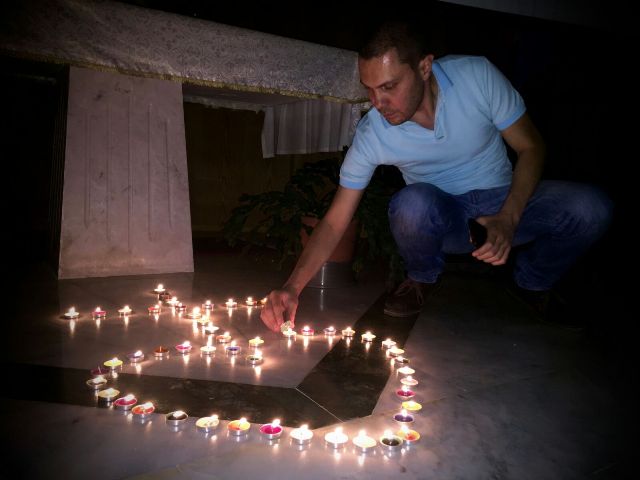 And we, the ones who believe in great ideals, in living peaceful and civil lives with respect for other cultures – do we truly believe it? And what price are we ready to pay? Frankly, the war in Syria is not a small matter. Who would have the courage to destroy a country that 6 years ago was growing with life and hope, where Muslims and Christians of different confessions and many other ethnic groups lived at peace with each other? Surely these destroyers are not single individuals. An answer by Chiara Lubich to some of our Muslim friends in 2002 came to mind. They had asked her about the hope that love and peace would win out over the war. She answered by citing the September 11th attacks: “Terrorism is a fruit of Evil (with a capital E) against which human strength will not suffice [. . .]. The forces of Good (with a capital G” are required [. . .] the forces of God’s Love. And so, what do we have to do? Prayer! We have to unite . . . all of us who are for universal brotherhood . . . unite to pray that terrorism will be overcome. And we can do it, because Jesus says that wherever two or more are gathered in His name, in His love, whatever they ask, will be done for them. And we are far more than two or three [. . .] Let us leave here with one idea: We are together, let us unite to pray. But that’s not enough. The main cause of terrorism is this indifference in front of a world that is half rich and half poor. They would like – and they’re not wrong in this – for there to be some communion of goods [. . .] some solidarity. We have to change hearts. Only if we carry out the work of universal brotherhood will we be able to convince ourselves and others that we should also put together our goods. We’ll begin amongst ourselves, but then the ideas begin to rise all the way to the Heads of State. We need to have this certainty: that with God, impossible things become possible; that with God – beginning with the brotherhood amongst us – we’ll reach the great goal: to make humanity one family [. . .]. This is our objective.”
And we, the ones who believe in great ideals, in living peaceful and civil lives with respect for other cultures – do we truly believe it? And what price are we ready to pay? Frankly, the war in Syria is not a small matter. Who would have the courage to destroy a country that 6 years ago was growing with life and hope, where Muslims and Christians of different confessions and many other ethnic groups lived at peace with each other? Surely these destroyers are not single individuals. An answer by Chiara Lubich to some of our Muslim friends in 2002 came to mind. They had asked her about the hope that love and peace would win out over the war. She answered by citing the September 11th attacks: “Terrorism is a fruit of Evil (with a capital E) against which human strength will not suffice [. . .]. The forces of Good (with a capital G” are required [. . .] the forces of God’s Love. And so, what do we have to do? Prayer! We have to unite . . . all of us who are for universal brotherhood . . . unite to pray that terrorism will be overcome. And we can do it, because Jesus says that wherever two or more are gathered in His name, in His love, whatever they ask, will be done for them. And we are far more than two or three [. . .] Let us leave here with one idea: We are together, let us unite to pray. But that’s not enough. The main cause of terrorism is this indifference in front of a world that is half rich and half poor. They would like – and they’re not wrong in this – for there to be some communion of goods [. . .] some solidarity. We have to change hearts. Only if we carry out the work of universal brotherhood will we be able to convince ourselves and others that we should also put together our goods. We’ll begin amongst ourselves, but then the ideas begin to rise all the way to the Heads of State. We need to have this certainty: that with God, impossible things become possible; that with God – beginning with the brotherhood amongst us – we’ll reach the great goal: to make humanity one family [. . .]. This is our objective.” 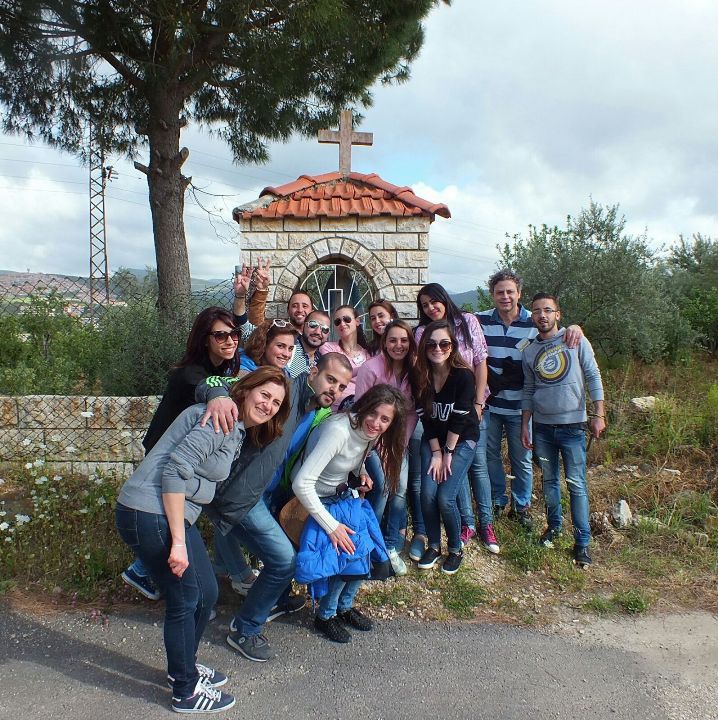 We shouldn’t delude ourselves. We shouldn’t wait for others to do something. We’re also responsible! If we truly believe that God can overcome Evil and that He listens to us, then we have to pray to the Father without ceasing, with the faith that He will help us; otherwise, we commit a sin of omission. Everybody remembers the time the bombings stopped over Syria, thanks to the influence of the prayer and fasting of the Pope and many others. And God heard us! And so He can hear us again. Let’s do it then – and always – until the reign of Peace comes not only in Syria, but in the whole world. See: Chiara Lubich, Castel Gandolfo, Italy, November 3, 2002, questions and answers with Muslim friends of the Focolare.
We shouldn’t delude ourselves. We shouldn’t wait for others to do something. We’re also responsible! If we truly believe that God can overcome Evil and that He listens to us, then we have to pray to the Father without ceasing, with the faith that He will help us; otherwise, we commit a sin of omission. Everybody remembers the time the bombings stopped over Syria, thanks to the influence of the prayer and fasting of the Pope and many others. And God heard us! And so He can hear us again. Let’s do it then – and always – until the reign of Peace comes not only in Syria, but in the whole world. See: Chiara Lubich, Castel Gandolfo, Italy, November 3, 2002, questions and answers with Muslim friends of the Focolare.
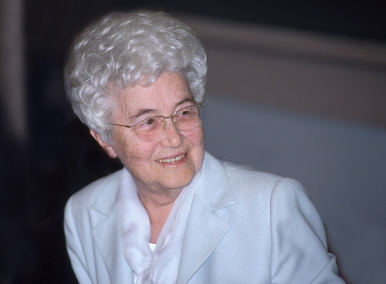
Mar 11, 2016 | Non categorizzato
 “A woman of dauntless faith, a meek messenger of hope and peace” – this is how Pope Benedict XVI described Chiara Lubich in his message at her funeral eight years ago. In January 2015, on the occasion of the official opening of the cause of her beatification, Pope Francis urged “to make known to the people of God the life and work of one who welcomed Our Lord’s invitation and enkindled a new light for the church on the journey towards unity”. Hundreds of initiatives held around the world remember her message of peace. The Focolare Community in Europe is promoting more than 200 events. “We live for Unity” is the title of the meeting in Minsk, Belarus. Meetings will held in the six cities where Focolare Communities are present in Sweden. In Munich, there will be the first “Chiaratag”. Journalists and qualified members of the Justice and Peace Commission will take part in the round table conference “Chiara and peace” held in Lisbon, Portugal. In Seville, Spain the theme will be “Chiara Lubich, educator for peace”. Allal Baschar, Imam of the Mosque of King Abdul Aziz al Saud of Marbella and Fr. Manuel Palma Ramírez, deputy director of the Seville Theological Studies Centre will be two speakers during this meeting. “A message of dialogue and peace” is the title of the meeting organized by the Focolare community in Sarajevo, Bosnia and Herzegovina. This Community, composed of Catholics, Orthodox, Muslims and people with no religious belief, will share the result of years of commitment lived side by side by its various members. The public is invited to attend, and Archbishop Cardinal Vinko Puljić is expected to participate. The firm belief in this message is passed through an ongoing dialogue, even in other Balkan countries, and it leads to mutual recognition of traditions and nationalities. Pearls, an educational programme carried out in Skopje, Macedonia shows this. It consists of an early childhood programme for children of various ethnic groups. It is linked to the university and also involves the families. Based on Lubich’s ideal of universal brotherhood, it was initiated by Professor Aziz Shehu, a Muslim who was then lecturer and pro-dean at the Faculty of Pedagogy. In early March, 110 young Croats, Serbs, Ruthenians, Albanians and Macedonians also gave witness of this irreversible process when, for the first time, with others from Bulgaria and Rumania, they came together under the banner, the Balkans: we are one Numerous meetings, symposia, conferences and concerts will be held in the Americas. These events vary from spiritual and prayerful to interfaith or environmental. They will take place from New York to San Francisco in U.S.A, from Santiago, Chile to La Habana, Cuba, Neza in the Mexican State of Nezahualcoyotl, Caracas in Venezuela, Rio de Janeiro in Brazil, Mendoza in Argentina. Very significant are the meetings to be held in the Pacific Islands of Honolulu, Hawaii, and in Noumea, New Caledonia. There is no family at Medellin, Colombia, who has not lost at least one of its members during these 50 years of conflict. So, even among the Focolare communities, one finds three generations with stories similar to that of Rosa, who had her son murdered by a friend but did not fall a victim of vengeance. She braved the situation with the courage of forgiveness while she worked in the social services centre of the neighbourhood to spread reconciliation, care, culture. Educational projects set up in different cities of Colombia, Ecuador, Venezuela and Mexico see generations of children grow up into professionals and teachers and assume the task of promoting an education that leads to fraternity and peace. Australia will focus on peace and fellowship, with appointments in Canberra, Melbourne, Sydney and Perth. The meeting in Perth, organized by youth, will be held in the central Northbridge Square.Politics for Unity: Making a World of Difference will be the theme for the conferences held in Wellington and in Christchurch, New Zealand. Thirty-one communities present in various regions of South Korea will animate the events that are meant to deepen the bond between Chiara Lubich and peace. The symposium at De La Salle University in Manila, the Philippines will focus on “The Charism of Unity: a timeless legacy” and delve into the Movement’s fifty years history in the continent of Asia. In Vietnam, 300 people from all over the country will be meeting in Vung Tau for several days to share and live together the spirituality of unity. In Pakistan, spiritual meetings and Masses for peace are to be held in seven cities. Events are also scheduled to take place in Burkina Faso, Ivory Coast, Cameroon, Nigeria, Kenya, Uganda and also in other places. Inspired by the current situation of social tension, Burundi choose the theme: Merciful like our Heavenly Father, we are builders of peace. A telephone conference call will unite, the big cities of the Democratic Rep. of Congo: Lubumbashi, Goma, Kinshasa and Kikwit. Here, 1500 people, among them ambassadors, members of UNESCO, representatives of different Christian denominations and Muslim authorities, will reflect on Peace in the family. The widespread presence of the Focolare communities in Italy stimulates numerous initiatives. In Rome, the meeting place for 280 young people will be the Italian Parliament where they will meet Laura Boldini, the president of the Italian Chamber of Deputies, Paolo Gentiloni, the Minister of foreign affairs and other members of Parliament. The three main speakers, who will discuss the manifesto containing concrete proposals on peace, disarmament and industrial reconversion are Pasquale Ferrara, a diplomat, Michele Zanzucchi, the director of Città Nuova and Shahrzad Houshmand, a Muslim theologian. Antonio M. Baggio will lecture to law students at the University of Pisa about: The love of loves. The religious and secular nature of politics in Chiara Lubich. “Religions dialogue in favour of peace and the environment” will be the event at the Palazzo Ducale in Genoa. During this event, Husein Salah, president of the Islamic Community, Giuseppe Momigliano, the chief Rabbi, Gnanathilaka Mahauswewe, a Buddhist monk, Andrea Ponta, an environmental engineer and Roberto Catalano from the Interreligious Diaolgue Centre of the Focolare Movement will give, a reflection on Laudato Si’. “Me through you” is the title of an itinerate event in Milan, which is a sort of “embrace” to the city and an interaction between different groups. There will be more dialogue, integration and forgiveness during the series of events “Is my world like yours?… steps towards getting to know one another better”. Members of the diplomatic Corps accredited to Italy and to the Holy See and representatives of the cultural world will meet at the Auditorium of the Mariapoli Centre at Castelgandolfo, Rome, where they will be welcomed by Maria Voce, president of the Focolare Movement. Chiara Lubich will be commemorated through The Culture of dialogue as a factor of peace. Whilst armed conflicts continue to cause havoc and kill hope in the Middle East, the Focolare communities in Syria affirm: “Even we are responsible to contribute towards peace. If we believe in God, the Lord of history who can conquer evil and hear our prayers, we would commit a sin of omission if we do not turn at all times to Him, who makes the impossible become possible and helps us to achieve our aim of uniting humanity into one family. So let us pray, while we change our hearts and share our goods”. The events of March 14, 2016 make sense because they aim at converging the efforts and prayers of many people, in many places on earth, to make the world become more united. Meanwhile, the cause of the beatification of Chiara Lubich, which began on January 27, 2015 is following the required process. Witness has already been offered by persons who are members of different Churches and by others who have no particular religious conviction. A mosaic of testimonies highlight her exemplary life, a commitment shared with all those whom God placed in her path to “become saints together”. Press Release
“A woman of dauntless faith, a meek messenger of hope and peace” – this is how Pope Benedict XVI described Chiara Lubich in his message at her funeral eight years ago. In January 2015, on the occasion of the official opening of the cause of her beatification, Pope Francis urged “to make known to the people of God the life and work of one who welcomed Our Lord’s invitation and enkindled a new light for the church on the journey towards unity”. Hundreds of initiatives held around the world remember her message of peace. The Focolare Community in Europe is promoting more than 200 events. “We live for Unity” is the title of the meeting in Minsk, Belarus. Meetings will held in the six cities where Focolare Communities are present in Sweden. In Munich, there will be the first “Chiaratag”. Journalists and qualified members of the Justice and Peace Commission will take part in the round table conference “Chiara and peace” held in Lisbon, Portugal. In Seville, Spain the theme will be “Chiara Lubich, educator for peace”. Allal Baschar, Imam of the Mosque of King Abdul Aziz al Saud of Marbella and Fr. Manuel Palma Ramírez, deputy director of the Seville Theological Studies Centre will be two speakers during this meeting. “A message of dialogue and peace” is the title of the meeting organized by the Focolare community in Sarajevo, Bosnia and Herzegovina. This Community, composed of Catholics, Orthodox, Muslims and people with no religious belief, will share the result of years of commitment lived side by side by its various members. The public is invited to attend, and Archbishop Cardinal Vinko Puljić is expected to participate. The firm belief in this message is passed through an ongoing dialogue, even in other Balkan countries, and it leads to mutual recognition of traditions and nationalities. Pearls, an educational programme carried out in Skopje, Macedonia shows this. It consists of an early childhood programme for children of various ethnic groups. It is linked to the university and also involves the families. Based on Lubich’s ideal of universal brotherhood, it was initiated by Professor Aziz Shehu, a Muslim who was then lecturer and pro-dean at the Faculty of Pedagogy. In early March, 110 young Croats, Serbs, Ruthenians, Albanians and Macedonians also gave witness of this irreversible process when, for the first time, with others from Bulgaria and Rumania, they came together under the banner, the Balkans: we are one Numerous meetings, symposia, conferences and concerts will be held in the Americas. These events vary from spiritual and prayerful to interfaith or environmental. They will take place from New York to San Francisco in U.S.A, from Santiago, Chile to La Habana, Cuba, Neza in the Mexican State of Nezahualcoyotl, Caracas in Venezuela, Rio de Janeiro in Brazil, Mendoza in Argentina. Very significant are the meetings to be held in the Pacific Islands of Honolulu, Hawaii, and in Noumea, New Caledonia. There is no family at Medellin, Colombia, who has not lost at least one of its members during these 50 years of conflict. So, even among the Focolare communities, one finds three generations with stories similar to that of Rosa, who had her son murdered by a friend but did not fall a victim of vengeance. She braved the situation with the courage of forgiveness while she worked in the social services centre of the neighbourhood to spread reconciliation, care, culture. Educational projects set up in different cities of Colombia, Ecuador, Venezuela and Mexico see generations of children grow up into professionals and teachers and assume the task of promoting an education that leads to fraternity and peace. Australia will focus on peace and fellowship, with appointments in Canberra, Melbourne, Sydney and Perth. The meeting in Perth, organized by youth, will be held in the central Northbridge Square.Politics for Unity: Making a World of Difference will be the theme for the conferences held in Wellington and in Christchurch, New Zealand. Thirty-one communities present in various regions of South Korea will animate the events that are meant to deepen the bond between Chiara Lubich and peace. The symposium at De La Salle University in Manila, the Philippines will focus on “The Charism of Unity: a timeless legacy” and delve into the Movement’s fifty years history in the continent of Asia. In Vietnam, 300 people from all over the country will be meeting in Vung Tau for several days to share and live together the spirituality of unity. In Pakistan, spiritual meetings and Masses for peace are to be held in seven cities. Events are also scheduled to take place in Burkina Faso, Ivory Coast, Cameroon, Nigeria, Kenya, Uganda and also in other places. Inspired by the current situation of social tension, Burundi choose the theme: Merciful like our Heavenly Father, we are builders of peace. A telephone conference call will unite, the big cities of the Democratic Rep. of Congo: Lubumbashi, Goma, Kinshasa and Kikwit. Here, 1500 people, among them ambassadors, members of UNESCO, representatives of different Christian denominations and Muslim authorities, will reflect on Peace in the family. The widespread presence of the Focolare communities in Italy stimulates numerous initiatives. In Rome, the meeting place for 280 young people will be the Italian Parliament where they will meet Laura Boldini, the president of the Italian Chamber of Deputies, Paolo Gentiloni, the Minister of foreign affairs and other members of Parliament. The three main speakers, who will discuss the manifesto containing concrete proposals on peace, disarmament and industrial reconversion are Pasquale Ferrara, a diplomat, Michele Zanzucchi, the director of Città Nuova and Shahrzad Houshmand, a Muslim theologian. Antonio M. Baggio will lecture to law students at the University of Pisa about: The love of loves. The religious and secular nature of politics in Chiara Lubich. “Religions dialogue in favour of peace and the environment” will be the event at the Palazzo Ducale in Genoa. During this event, Husein Salah, president of the Islamic Community, Giuseppe Momigliano, the chief Rabbi, Gnanathilaka Mahauswewe, a Buddhist monk, Andrea Ponta, an environmental engineer and Roberto Catalano from the Interreligious Diaolgue Centre of the Focolare Movement will give, a reflection on Laudato Si’. “Me through you” is the title of an itinerate event in Milan, which is a sort of “embrace” to the city and an interaction between different groups. There will be more dialogue, integration and forgiveness during the series of events “Is my world like yours?… steps towards getting to know one another better”. Members of the diplomatic Corps accredited to Italy and to the Holy See and representatives of the cultural world will meet at the Auditorium of the Mariapoli Centre at Castelgandolfo, Rome, where they will be welcomed by Maria Voce, president of the Focolare Movement. Chiara Lubich will be commemorated through The Culture of dialogue as a factor of peace. Whilst armed conflicts continue to cause havoc and kill hope in the Middle East, the Focolare communities in Syria affirm: “Even we are responsible to contribute towards peace. If we believe in God, the Lord of history who can conquer evil and hear our prayers, we would commit a sin of omission if we do not turn at all times to Him, who makes the impossible become possible and helps us to achieve our aim of uniting humanity into one family. So let us pray, while we change our hearts and share our goods”. The events of March 14, 2016 make sense because they aim at converging the efforts and prayers of many people, in many places on earth, to make the world become more united. Meanwhile, the cause of the beatification of Chiara Lubich, which began on January 27, 2015 is following the required process. Witness has already been offered by persons who are members of different Churches and by others who have no particular religious conviction. A mosaic of testimonies highlight her exemplary life, a commitment shared with all those whom God placed in her path to “become saints together”. Press Release
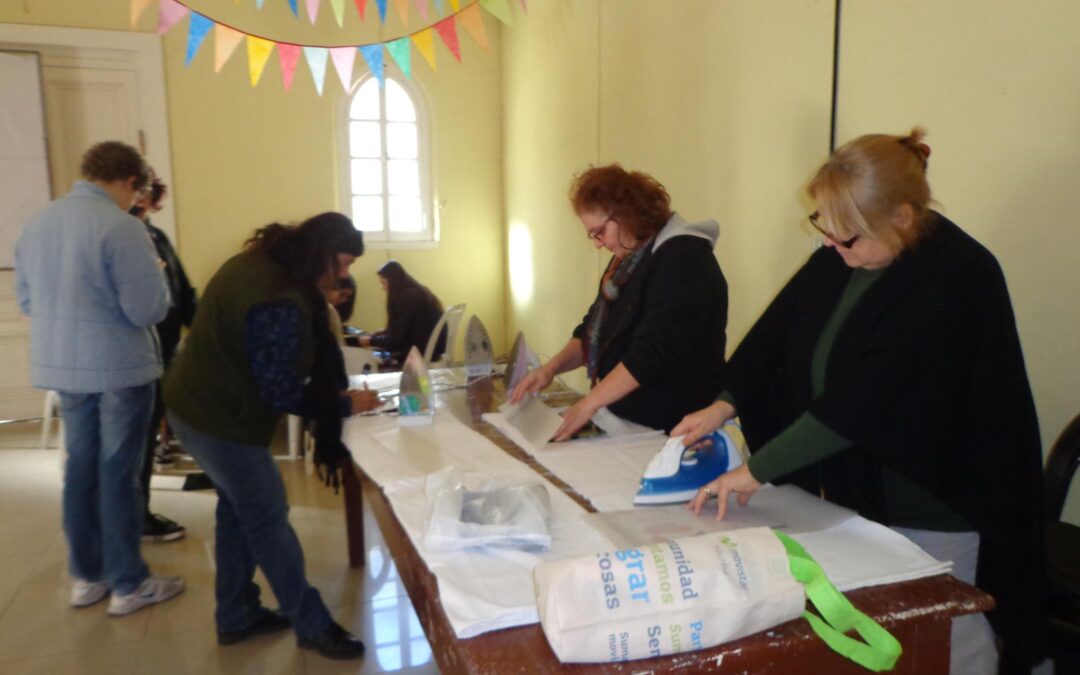
Mar 11, 2016 | Non categorizzato
 From the Argentinean capital, if you take the south bound motorway, after half an hour you would get to Plátanos, a peripheral barrio of about 20,000 inhabitants. They are hardworking people who have built their own homes with great effort and very little money. The parish, dedicated to Saint Elisabeth of Hungary, is very active. Fr. Francesco Ballarini, Italian, brought the Focolare spirit there almost 30 years ago. Today, it is the lay people who continue to live this spirit of unity, together with other diocesan parishes. “At the start of the year – they recounted – we organised a party for the children of the most far out district of Plátanos, the inhabitants of which do not frequent the parish very much. Each of them was invited to put in common their own talents: some taught how to make bread, others how to paint, and there were a ceramics lab, a catechist dad to play magician, and some ladies who taught how to prepare mate (the typical infusion drunk in the Southern tip of the country).” On this occasion they met a 15-year-old at the end of her pregnancy. “She needed everything. A solidarity competition started in order to meet the needs of the child who was born a few days early. Upon reaching her house, we were shocked by the downgrade of the small place: without a floor or windows, a broken door, and with her six siblings living there with her parents. When the community heard about this situation, a lot of aid started coming in. We are almost ready to install the windows, doors, a heater and other people have offered to give a hand. Some ladies went to teach M. how to best take care of her baby, and M. who was sad and irritable when we first met her, has started to smile. It is the charity lived all together that works small miracles.”
From the Argentinean capital, if you take the south bound motorway, after half an hour you would get to Plátanos, a peripheral barrio of about 20,000 inhabitants. They are hardworking people who have built their own homes with great effort and very little money. The parish, dedicated to Saint Elisabeth of Hungary, is very active. Fr. Francesco Ballarini, Italian, brought the Focolare spirit there almost 30 years ago. Today, it is the lay people who continue to live this spirit of unity, together with other diocesan parishes. “At the start of the year – they recounted – we organised a party for the children of the most far out district of Plátanos, the inhabitants of which do not frequent the parish very much. Each of them was invited to put in common their own talents: some taught how to make bread, others how to paint, and there were a ceramics lab, a catechist dad to play magician, and some ladies who taught how to prepare mate (the typical infusion drunk in the Southern tip of the country).” On this occasion they met a 15-year-old at the end of her pregnancy. “She needed everything. A solidarity competition started in order to meet the needs of the child who was born a few days early. Upon reaching her house, we were shocked by the downgrade of the small place: without a floor or windows, a broken door, and with her six siblings living there with her parents. When the community heard about this situation, a lot of aid started coming in. We are almost ready to install the windows, doors, a heater and other people have offered to give a hand. Some ladies went to teach M. how to best take care of her baby, and M. who was sad and irritable when we first met her, has started to smile. It is the charity lived all together that works small miracles.”  “Another initiative we are working on – they continued – is the Sachetera project: it is about the manufacture of sleeping sacks with the milk bags, for the homeless. As a parish we want to continue supporting this project, and even each of us could work in their own homes. We prefer working together: kids, adolescents and adults. During a very rainy day, we thought it would be impossible to meet, but the thought of our homeless friends urged us to work even harder.” “We then gathered at Bernal (another barrio) with members of other parishes and the Focolare youth who brought ahead the aid project for the needy. For us it is important to share our experiences with other parishes, also so we would not enclose ourselves only in “our” periphery, and instead open out to the others.” In September, the house of a family in a nearby district burned down – destroying everything, “we started up an action aid, bringing the primary necessities from our own homes. With the communion of goods we contributed to the building of the walls. So with great enthusiasm, they were able to rebuild their house. Only much later, we found out that the family belongs to the Pentecostal church, and that he was the Pastor. We were moved since Love did not consider, once again, one’s religious profession, or other differences.» In the following days, the Pastor who worked as a mason, offered to plaster the wall of the church which wanted to build an altar for the icon of the Virgin of Luján. «I thank you all for the love you gave me, without asking anything in return – the Pastor said to the Catholic community gathered for the Sunday mass, and which they wanted to take part in – you have helped me overcome the prejudices that many of us (Pentecostals) feel towards Catholics. You too are my brothers.”
“Another initiative we are working on – they continued – is the Sachetera project: it is about the manufacture of sleeping sacks with the milk bags, for the homeless. As a parish we want to continue supporting this project, and even each of us could work in their own homes. We prefer working together: kids, adolescents and adults. During a very rainy day, we thought it would be impossible to meet, but the thought of our homeless friends urged us to work even harder.” “We then gathered at Bernal (another barrio) with members of other parishes and the Focolare youth who brought ahead the aid project for the needy. For us it is important to share our experiences with other parishes, also so we would not enclose ourselves only in “our” periphery, and instead open out to the others.” In September, the house of a family in a nearby district burned down – destroying everything, “we started up an action aid, bringing the primary necessities from our own homes. With the communion of goods we contributed to the building of the walls. So with great enthusiasm, they were able to rebuild their house. Only much later, we found out that the family belongs to the Pentecostal church, and that he was the Pastor. We were moved since Love did not consider, once again, one’s religious profession, or other differences.» In the following days, the Pastor who worked as a mason, offered to plaster the wall of the church which wanted to build an altar for the icon of the Virgin of Luján. «I thank you all for the love you gave me, without asking anything in return – the Pastor said to the Catholic community gathered for the Sunday mass, and which they wanted to take part in – you have helped me overcome the prejudices that many of us (Pentecostals) feel towards Catholics. You too are my brothers.”
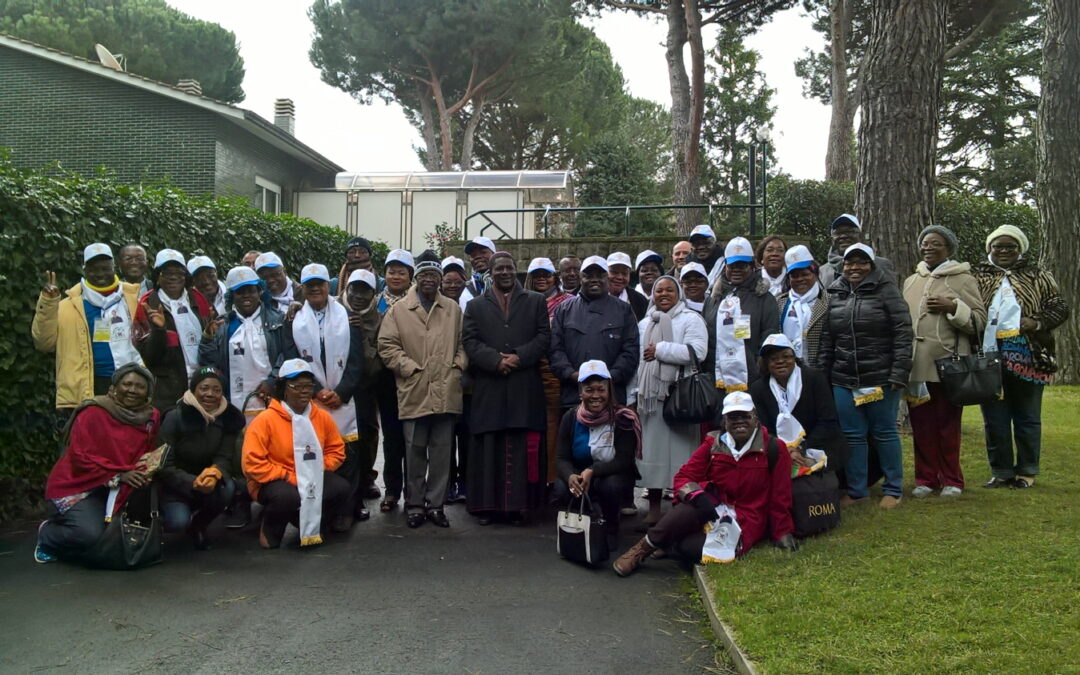
Mar 10, 2016 | Focolare Worldwide
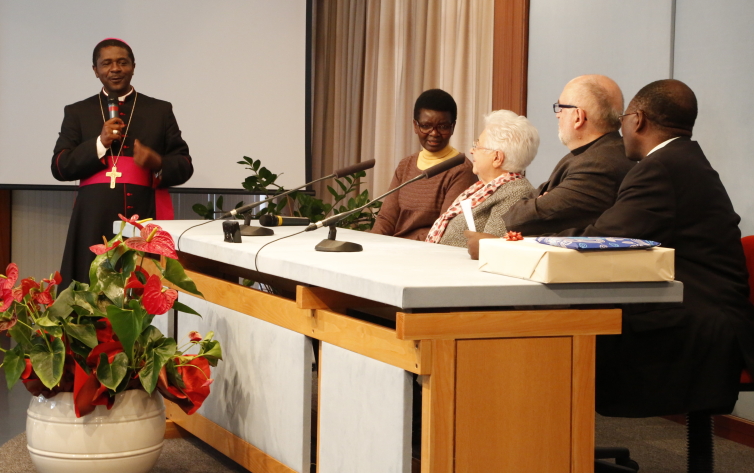 “We cannot talk about evangelization in Fontem without the Focolare Movement,” said Bishop Nkea standing in front of the television cameras during his visit to the International Centre in Rocca di Papa, Italy, on March 8. “Chiara Lubich went to Fontem 50 years ago, and she brought the Ideal [spirituality of unity]. That is why we have come here: to thank Chiara and the Movement for everything it has done for us in these 50 years. This is a pilgrimage of thanksgiving.” “The Diocese of Mamfe did not exist 50 years ago and Fontem was a lost village in the Cameroonian forest that was difficult to reach.” We cannot understand the Bishop’s words without returning to the history of an event that has been called the “miracle in the forest”. Fontem was the first permanent Mariapolis on the African continent. In 1966, several focolarini, doctors, went to help the Bangwa people who were being decimated with an infant mortality rate of 98%. A few months later, Chiara herself visited them: “That huge crowd of people gathered on the vast plane in front of the home of their Fon,” she would say in 1995, “appeared so united and so anxious to be elevated [. . .] that it seemed to me long prepared by Mary to embrace the Christian faith in its most integral and genuine form.” “The focolarini were believed because they did to Jesus what they did to the Bangwa, offering, above all, a witness of the love amongst themselves and towards everyone.”
“We cannot talk about evangelization in Fontem without the Focolare Movement,” said Bishop Nkea standing in front of the television cameras during his visit to the International Centre in Rocca di Papa, Italy, on March 8. “Chiara Lubich went to Fontem 50 years ago, and she brought the Ideal [spirituality of unity]. That is why we have come here: to thank Chiara and the Movement for everything it has done for us in these 50 years. This is a pilgrimage of thanksgiving.” “The Diocese of Mamfe did not exist 50 years ago and Fontem was a lost village in the Cameroonian forest that was difficult to reach.” We cannot understand the Bishop’s words without returning to the history of an event that has been called the “miracle in the forest”. Fontem was the first permanent Mariapolis on the African continent. In 1966, several focolarini, doctors, went to help the Bangwa people who were being decimated with an infant mortality rate of 98%. A few months later, Chiara herself visited them: “That huge crowd of people gathered on the vast plane in front of the home of their Fon,” she would say in 1995, “appeared so united and so anxious to be elevated [. . .] that it seemed to me long prepared by Mary to embrace the Christian faith in its most integral and genuine form.” “The focolarini were believed because they did to Jesus what they did to the Bangwa, offering, above all, a witness of the love amongst themselves and towards everyone.” 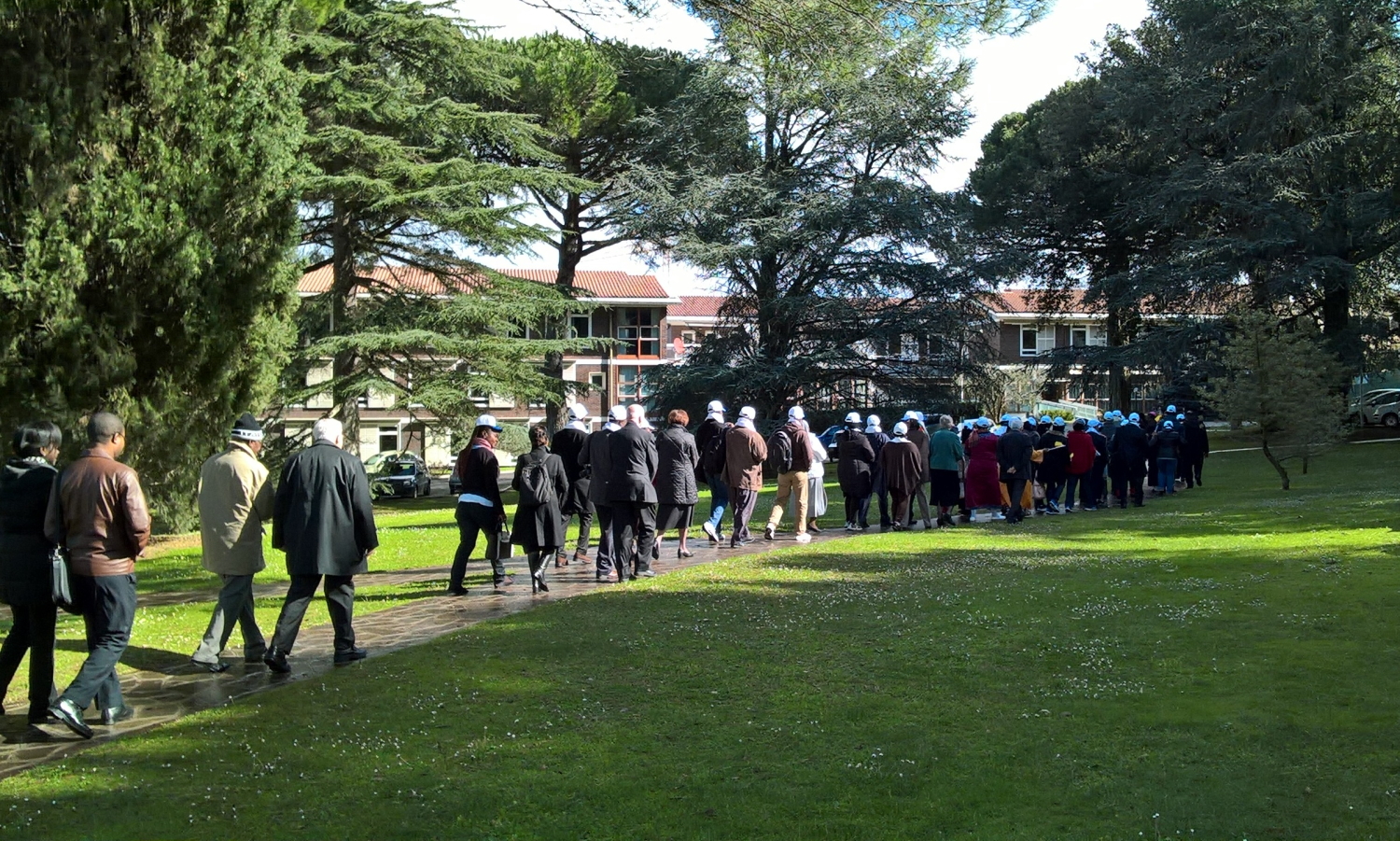 Today there is a hospital in Fontem, Mary Health of Africa, which serves a large part of the region; and a college, Mary Seat of Wisdom, which prepares students for university. With the help of focolarini priests, parishes have been opened in Menji, Fotabong, Fonjumetaw. Bishop Nkea declared: “Mainly, we learned mutual love and unity. I’m also Bangwa, so I’m speaking in the name of my people.” “We learned interreligious dialogue: What is important for us now is that we love one another, whether we are Christian or not, to live in this unity with each other.”
Today there is a hospital in Fontem, Mary Health of Africa, which serves a large part of the region; and a college, Mary Seat of Wisdom, which prepares students for university. With the help of focolarini priests, parishes have been opened in Menji, Fotabong, Fonjumetaw. Bishop Nkea declared: “Mainly, we learned mutual love and unity. I’m also Bangwa, so I’m speaking in the name of my people.” “We learned interreligious dialogue: What is important for us now is that we love one another, whether we are Christian or not, to live in this unity with each other.” 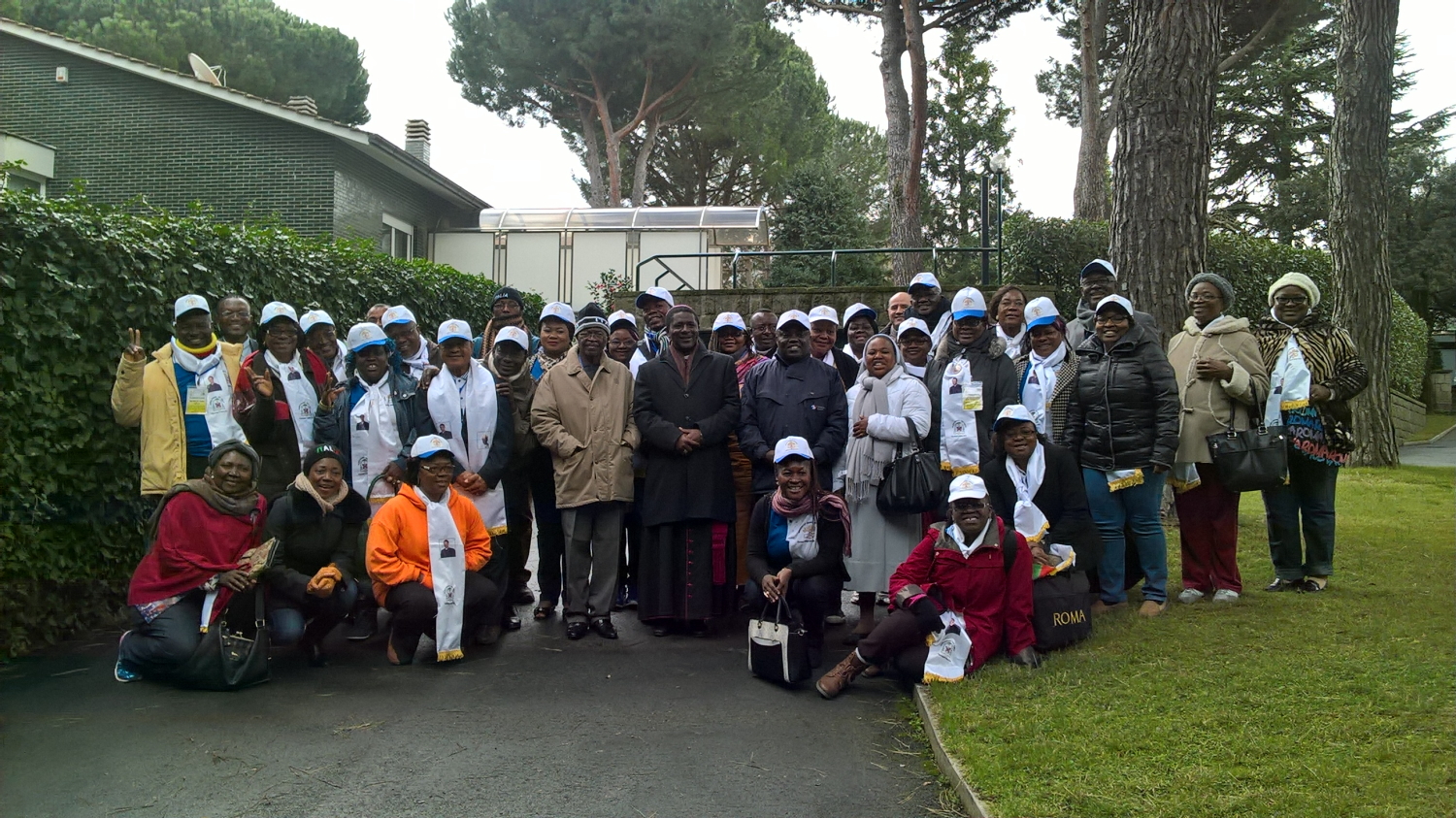 The delegation that had come to render homage to Chiara Lubich included bishops – Bishop Nkea and Emeritus Bishop Lysinge who was celebrating the 50th anniversary of his ordination to the priesthood – priests, women religious and many lay people. They are a living testimony to the communion in the diocese. They were welcomed at the International Centre of the Focolare by the Movement’s president, Maria Voce – who first visited Fontem in January 2009 – and the Movement’s co-president, Jesús Morán, who will visit Fontem this coming December. The visit of the delegation marked the opening of the 50th anniversary celebrations of the arrival of the spirituality of unity in Fontem (1966-2016) and will continue through the year. The visit to Chiara’s house was particularly moving. The day concluded with a solemn Mass in the chapel where Chiara rests. “Your pilgrimage here today bears witness to the fruits produced by that first visit of Chiara, which launched a Divine adventure that no one ever imagined,” Maria Voce said as she welcomed them. “You are the fruit of the life of these 50 years. It is a great joy for us and shows us the vitality of Africa. Fifty years have gone by and our wish to each other now is that we begin a new period, hopefully a long period for offering to God trees covered with fruits and with blossoms.” Jesús Morán commented: “There is an exchange of gifts between Africa and us. The charism of unity is a gift for Africa, and Africa is a gift for the whole Movement.”
The delegation that had come to render homage to Chiara Lubich included bishops – Bishop Nkea and Emeritus Bishop Lysinge who was celebrating the 50th anniversary of his ordination to the priesthood – priests, women religious and many lay people. They are a living testimony to the communion in the diocese. They were welcomed at the International Centre of the Focolare by the Movement’s president, Maria Voce – who first visited Fontem in January 2009 – and the Movement’s co-president, Jesús Morán, who will visit Fontem this coming December. The visit of the delegation marked the opening of the 50th anniversary celebrations of the arrival of the spirituality of unity in Fontem (1966-2016) and will continue through the year. The visit to Chiara’s house was particularly moving. The day concluded with a solemn Mass in the chapel where Chiara rests. “Your pilgrimage here today bears witness to the fruits produced by that first visit of Chiara, which launched a Divine adventure that no one ever imagined,” Maria Voce said as she welcomed them. “You are the fruit of the life of these 50 years. It is a great joy for us and shows us the vitality of Africa. Fifty years have gone by and our wish to each other now is that we begin a new period, hopefully a long period for offering to God trees covered with fruits and with blossoms.” Jesús Morán commented: “There is an exchange of gifts between Africa and us. The charism of unity is a gift for Africa, and Africa is a gift for the whole Movement.”
Leer more: 50th anniversary of the Focolare in Africa
The personal witness of the Fon of Fontem Lucas Njifua https://vimeo.com/91709757
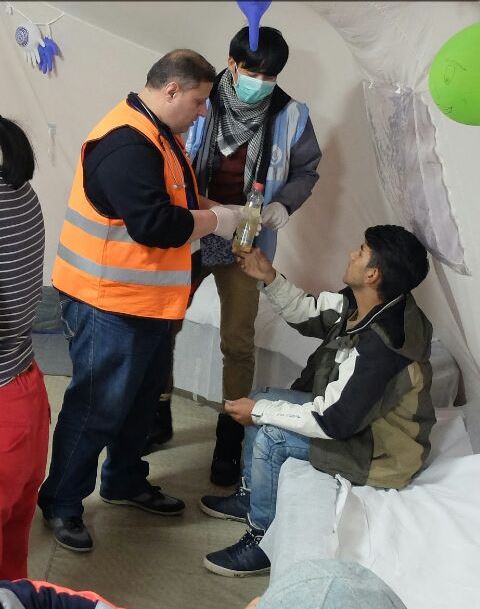
Mar 9, 2016 | Non categorizzato
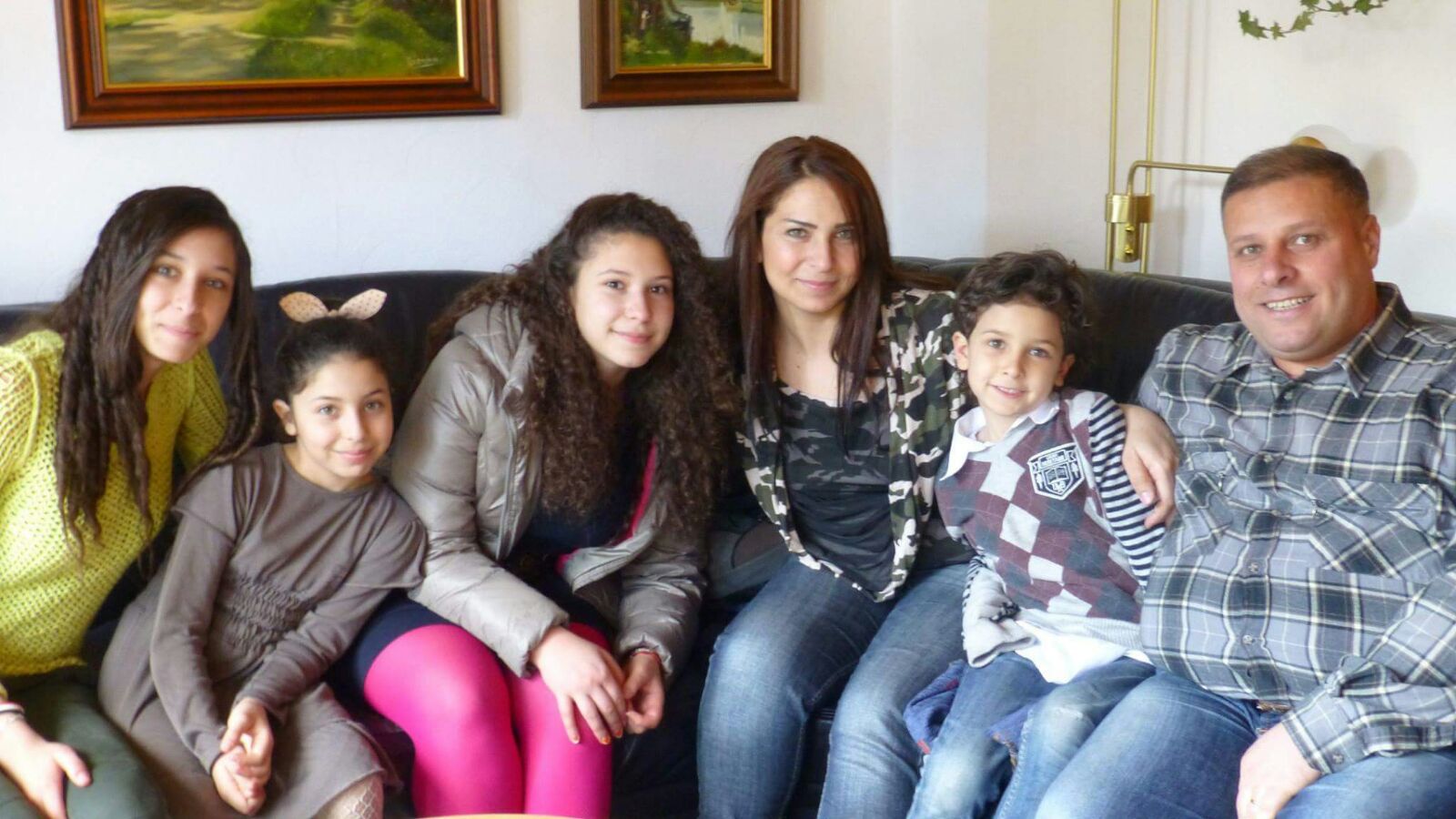 “Five years ago, before the outbreak of the Syrian conflict, my family and I planned to make a full-time experience at the international town of the Focolare in Loppiano (Florence). Violet and I attended the Loreto School, where with other couples from various parts of the world, we deepened the topic of the family in the light of the spirituality of unity while our four children attended the schools of the region. After years of work as a doctor, we wanted to dedicate a year of our life to God. We prepared to leave with great care and responsibility, unaware of what would happen from then on: after the outbreak of the conflicts in our country. In the time that remained before our departure, I managed to be useful in many ways, giving first aid to the wounded, and making long and risky trips by car to reach them. Also the departure for Italy was rather adventurous precisely due to the disorders that unfortunately continued.
“Five years ago, before the outbreak of the Syrian conflict, my family and I planned to make a full-time experience at the international town of the Focolare in Loppiano (Florence). Violet and I attended the Loreto School, where with other couples from various parts of the world, we deepened the topic of the family in the light of the spirituality of unity while our four children attended the schools of the region. After years of work as a doctor, we wanted to dedicate a year of our life to God. We prepared to leave with great care and responsibility, unaware of what would happen from then on: after the outbreak of the conflicts in our country. In the time that remained before our departure, I managed to be useful in many ways, giving first aid to the wounded, and making long and risky trips by car to reach them. Also the departure for Italy was rather adventurous precisely due to the disorders that unfortunately continued. 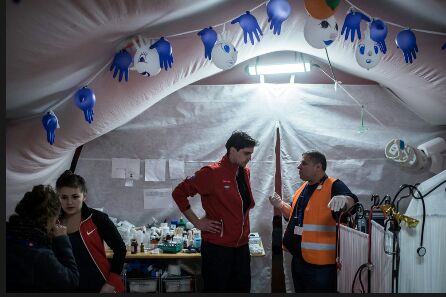 As we followed with trepidation the increasingly tragic news from afar, at the end of the course our relatives implored us to delay our return. You can imagine the anguish with which we made this decision, and the pain of not being able to do anything for our compatriots. We felt like a car with an engine in full thrust being held on the spot by force. But neither was it simple to remain in Italy. There was no future ahead of us. Even if we were in a friendly environment, because my qualifications were not recognised, I was not allowed to practice my profession. So I adapted myself to doing other jobs, like carpentry or other works, while waiting for some opening.
As we followed with trepidation the increasingly tragic news from afar, at the end of the course our relatives implored us to delay our return. You can imagine the anguish with which we made this decision, and the pain of not being able to do anything for our compatriots. We felt like a car with an engine in full thrust being held on the spot by force. But neither was it simple to remain in Italy. There was no future ahead of us. Even if we were in a friendly environment, because my qualifications were not recognised, I was not allowed to practice my profession. So I adapted myself to doing other jobs, like carpentry or other works, while waiting for some opening.  Finally an occasion came up where I could do something for my people. I found out about a reception project of “Doctors Without Borders” that helps refugees in Slovenia, which needed an Arab-speaking doctor. So I immediately left, without knowing exactly how it would be. Upon my arrival, I immediately set myself at the service of many who reached the Refugee center via the sea or after a long journey on foot. Many of them came from Iran, Iraq, Afghanistan… and many also from Syria! Seeing them arrive and welcoming them in our language was really moving, so that tears ran down my face. From then on I no longer worried about the hours of sleep, food… I wanted to stay with them all the time to soothe their suffering, taking care of them and making them feel “at home.” I can still remember the first baby girl I took care of: she kept crying, and we couldn’t calm her down. Upon visiting her I understood that she only had a stomach ache and I started to cradle her and speak to her in Arab… the child slowly calmed down and fell asleep in my arms. When the others approached to take her, she would struggle and did not want to let my arm go… it was really a strong experience. Over here the flow is continuous. Three trains arrive daily with about 2,500 people. In only four days we had to see to so many people, as had never happened in any month. There are only six of us in our team: the others are all natives of the place. Also they noticed how touching it was for me to see my compatriots arrive in those conditions. When I receive them, saying my name (Issa=Jesus), I see their eyes light up. For each of them I would like to be another Jesus, who is there to welcome and take care of them, through me. The chance to do so is like God’s answer for me.”
Finally an occasion came up where I could do something for my people. I found out about a reception project of “Doctors Without Borders” that helps refugees in Slovenia, which needed an Arab-speaking doctor. So I immediately left, without knowing exactly how it would be. Upon my arrival, I immediately set myself at the service of many who reached the Refugee center via the sea or after a long journey on foot. Many of them came from Iran, Iraq, Afghanistan… and many also from Syria! Seeing them arrive and welcoming them in our language was really moving, so that tears ran down my face. From then on I no longer worried about the hours of sleep, food… I wanted to stay with them all the time to soothe their suffering, taking care of them and making them feel “at home.” I can still remember the first baby girl I took care of: she kept crying, and we couldn’t calm her down. Upon visiting her I understood that she only had a stomach ache and I started to cradle her and speak to her in Arab… the child slowly calmed down and fell asleep in my arms. When the others approached to take her, she would struggle and did not want to let my arm go… it was really a strong experience. Over here the flow is continuous. Three trains arrive daily with about 2,500 people. In only four days we had to see to so many people, as had never happened in any month. There are only six of us in our team: the others are all natives of the place. Also they noticed how touching it was for me to see my compatriots arrive in those conditions. When I receive them, saying my name (Issa=Jesus), I see their eyes light up. For each of them I would like to be another Jesus, who is there to welcome and take care of them, through me. The chance to do so is like God’s answer for me.”
Mar 8, 2016 | Non categorizzato

Mar 8, 2016 | Non categorizzato
 “We could say that it is the moment for women: not because the media endlessly focus on divorce and VIP trends but because of the fact that more than ever today, coexistence and the fruit of man-woman dialectics call for the presence of those who are, or will be mothers, naturally or spiritually. The social body as never before suffers the lack of full health and normal feminineness: it is as if its flight was done with two wings, one of which was too overwrought, and the other lifeless, which make its progress very disorderly. People are aware that this is the time for woman, but of a womanly woman, and not a contamination or contrast of man: almost like a feminised man. The history of the last centuries in which the strong man – the superman – had been forged in disdain for feminineness, was affected by excessive masculinity, not counterbalanced by feminineness. The same but contrary effect of non-integrated feminineness is imbued by a sense of virility. Women today have voting rights, gained managing roles in offices, and entered into public life. But their impact remains dull, like before or even worse since by entering the political battles they align with the males, taking on their ambitions, and bowing to their methods: they have become reduced-performance males. Their votes, without outstanding discrimination are added to those of men since the latter’s game continues as before, without corrections, integration, or being enlightened by the other, which is an indispensable factor. And so the flight (or plunge) continues with only one wing. Just think of what Mary’s fascination was like, and what it still is today – her name alone signifies the sublimation of woman who was made to become the grafting point of the divine onto the human, and as the ianua coeli, door to Heaven, the rise of the human towards the divine. Societies today call for the presence of the woman, so that she could imbue in society the demands for maternity, life, and therefore, of material and moral nutrition, education, love in peace and work, of the family gathered in pureness and thus, the condemnation of factions and wars. This is because woman by nature stands for generation of life and not production of death, for the good of the offspring which are the State and the Church of the future, the same humanity.” (Igino Giordani, “Fides” publication, 1961)
“We could say that it is the moment for women: not because the media endlessly focus on divorce and VIP trends but because of the fact that more than ever today, coexistence and the fruit of man-woman dialectics call for the presence of those who are, or will be mothers, naturally or spiritually. The social body as never before suffers the lack of full health and normal feminineness: it is as if its flight was done with two wings, one of which was too overwrought, and the other lifeless, which make its progress very disorderly. People are aware that this is the time for woman, but of a womanly woman, and not a contamination or contrast of man: almost like a feminised man. The history of the last centuries in which the strong man – the superman – had been forged in disdain for feminineness, was affected by excessive masculinity, not counterbalanced by feminineness. The same but contrary effect of non-integrated feminineness is imbued by a sense of virility. Women today have voting rights, gained managing roles in offices, and entered into public life. But their impact remains dull, like before or even worse since by entering the political battles they align with the males, taking on their ambitions, and bowing to their methods: they have become reduced-performance males. Their votes, without outstanding discrimination are added to those of men since the latter’s game continues as before, without corrections, integration, or being enlightened by the other, which is an indispensable factor. And so the flight (or plunge) continues with only one wing. Just think of what Mary’s fascination was like, and what it still is today – her name alone signifies the sublimation of woman who was made to become the grafting point of the divine onto the human, and as the ianua coeli, door to Heaven, the rise of the human towards the divine. Societies today call for the presence of the woman, so that she could imbue in society the demands for maternity, life, and therefore, of material and moral nutrition, education, love in peace and work, of the family gathered in pureness and thus, the condemnation of factions and wars. This is because woman by nature stands for generation of life and not production of death, for the good of the offspring which are the State and the Church of the future, the same humanity.” (Igino Giordani, “Fides” publication, 1961)

Mar 7, 2016 | Focolare Worldwide
 “We got to know a family from Burundi who in the current terrible situation in their country, about which we hear very little, have left the country like many other families and come to Kampala where we live,”write us from Uganda. “The husband went back to Burundi so as not to lose his job and to be able to pay the rent on the house in Uganda and buy food for their children, including a three week old baby. “His wife had not been able to stay in Burundi when shooting began again in their city, as she had too vivid memories of all that had happened in the 1990s during the civil war. Then she had miraculously escaped death because the Headmaster of the school she attended had twice paid off soldiers who had come to the school on two consecutive days to look for her and the other girls. So, when the first signs of trouble began, the family had decided to go, leaving all they had behind in Bujumbura. They had brought other relatives with them, so there were 8 of them in all. “We heard that the rent did not cover furniture and that they had only 4 chairs in the living room: what could we do? We thought that four of our folding chairs, used occasionally when many people come to our house, would be made better use of in their house, so that at least everyone could sit and eat comfortably. “As we left we cut two pumpkins from the garden to take with us. We had planted a number of them almost by chance a few months earlier and they had picked up after the dry season and had been extremely useful in recent weeks! Moreover, just the day before we had received some food supplies. Providence has never been lacking over the last few months and it is truly by sharing it that the Gospel promise “give and gifts will be given to you” comes true. So we took two kilos of sugar, two of rice, one kilo of salt and a litre of oil and went to see the family. “Their house was new and clean and there were some unusual trimmings on the ceiling as well as a nice light fitting. But there were no beds in the bedrooms, only mattresses. In the living room there was a small round plastic table and four chairs, a little television in the corner on the floor with an antenna hanging over visitors’ heads. We could not see any toys or other furniture. “We went in with the chairs and spent two very happy hours with the family getting to know them better and sharing past memories and hopes for the future. The children are not going to school at the moment. The older ones want to go to university but it is much more expensive in Uganda than Burundi so it is not possible for now. Finding work is difficult too, as many people are unemployed and it is almost impossible for foreigners if you don’t know someone. What is more they don’t speak luganda, the local language, and English is not their mother tongue either. But they said “… We trust in God!”. “It was already 7.30 in the evening and we needed to go home. We all said goodbye. They were so happy we had come but as soon as we asked them to keep the chairs, and return them when they left that house, their faces lit up and they thanked us again and again! Before getting into the car they wanted to give us their blessing! On the way home I thought that four ordinary chairs and two pumpkins, once given, can fill the hearts, both of those who receive and those who give, with joy…” (S.M. Uganda)
“We got to know a family from Burundi who in the current terrible situation in their country, about which we hear very little, have left the country like many other families and come to Kampala where we live,”write us from Uganda. “The husband went back to Burundi so as not to lose his job and to be able to pay the rent on the house in Uganda and buy food for their children, including a three week old baby. “His wife had not been able to stay in Burundi when shooting began again in their city, as she had too vivid memories of all that had happened in the 1990s during the civil war. Then she had miraculously escaped death because the Headmaster of the school she attended had twice paid off soldiers who had come to the school on two consecutive days to look for her and the other girls. So, when the first signs of trouble began, the family had decided to go, leaving all they had behind in Bujumbura. They had brought other relatives with them, so there were 8 of them in all. “We heard that the rent did not cover furniture and that they had only 4 chairs in the living room: what could we do? We thought that four of our folding chairs, used occasionally when many people come to our house, would be made better use of in their house, so that at least everyone could sit and eat comfortably. “As we left we cut two pumpkins from the garden to take with us. We had planted a number of them almost by chance a few months earlier and they had picked up after the dry season and had been extremely useful in recent weeks! Moreover, just the day before we had received some food supplies. Providence has never been lacking over the last few months and it is truly by sharing it that the Gospel promise “give and gifts will be given to you” comes true. So we took two kilos of sugar, two of rice, one kilo of salt and a litre of oil and went to see the family. “Their house was new and clean and there were some unusual trimmings on the ceiling as well as a nice light fitting. But there were no beds in the bedrooms, only mattresses. In the living room there was a small round plastic table and four chairs, a little television in the corner on the floor with an antenna hanging over visitors’ heads. We could not see any toys or other furniture. “We went in with the chairs and spent two very happy hours with the family getting to know them better and sharing past memories and hopes for the future. The children are not going to school at the moment. The older ones want to go to university but it is much more expensive in Uganda than Burundi so it is not possible for now. Finding work is difficult too, as many people are unemployed and it is almost impossible for foreigners if you don’t know someone. What is more they don’t speak luganda, the local language, and English is not their mother tongue either. But they said “… We trust in God!”. “It was already 7.30 in the evening and we needed to go home. We all said goodbye. They were so happy we had come but as soon as we asked them to keep the chairs, and return them when they left that house, their faces lit up and they thanked us again and again! Before getting into the car they wanted to give us their blessing! On the way home I thought that four ordinary chairs and two pumpkins, once given, can fill the hearts, both of those who receive and those who give, with joy…” (S.M. Uganda)
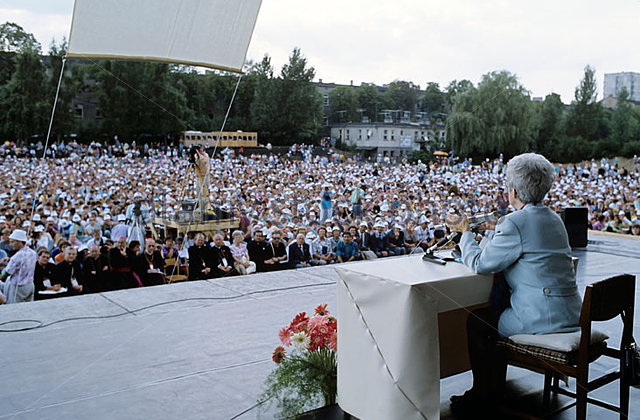
Mar 6, 2016 | Non categorizzato
 “What should not have happened, has happened: a terrible war has begun and the whole world is holding its breath, fearing it might spread and involve other nations.” It was a few weeks after the US invasion of Iraq, which took place on 17th January 1991, in response to the Iraqi invasion of Kuwait on 2nd August 1990. Chiara Lubich wrote on the subject of peace for Città Nuova magazine. This is taken from an editorial in February 1991. “Despite so many prayers, God has permitted the war. Why? Because the will of those responsible for it did not coincide with His will, expressed by the chorus of voices of those who were in the right. The Holy Father, the world’s greatest spiritual and moral authority, summed up these voices in his own constant appeals for peace, affirming the uselessness of war in resolving problems and its inevitable disastrous consequences. We can only hope that in the mysterious plans of God and because of His infinite love, He will draw something good from this immense evil. We don’t deserve it, but we know the immensity of His mercy. For this reason and above all so that peace may return, we will not stop praying. On the contrary! Now our “time out” to pray in unity for peace at noon each day will need to be even more intense. Moreover, we must all feel called in this moment to follow with determination a life style which corrects, at least within us (and through the communion of saints in many others), the mistake that has been made. Human beings have not done the will of God, the will of the God of peace. They did their own will. We must make every effort, as never before, to carry out the will of God perfectly. “Not my will but yours be done”. Today these words of Jesus must acquire an altogether special importance for us. Compared to His word, everything else must become secondary. We shouldn’t give much importance in our lives to being healthy or sick, to studying or serving, to sleeping or praying, to living or dying. What matters is to make his will our own, to be his will lived out. This is the way we lived at the beginning of our Movement when, in the setting of another war, the Spirit gave us the light to understand the true value of things. Faced with the destruction caused by hatred, God revealed himself as the one ideal that does not pass, that no bomb could destroy. God Love, this was the great discovery, a spiritual bomb of such power that it made us literally forget all the bombs falling around us in the war. We discovered that beyond everyone and everything was God who is love, and his providence which makes all things work together for the good of those who love him. We identified the signs of his love in each circumstance, even in the pain of suffering. He loved us immensely. How could we love him in return? It is not the one who says Lord, Lord, who loves me, but the one who does my will.” We could love God by doing his will. Living like this we got used to listening with every greater attention to “the voice” within us, the voice of our conscience which emphasized the will of God expressed in different ways, through his Word, the duties of our state in life, circumstances, inspirations. We were certain that God would draw us into a divine adventure, at first unknown to us, where as both spectators and actors in his design of love, we could give the contribution of our own free will, moment by moment. A short while later he let us see something of our future, helping us see clearly the purpose for which the Movement was coming about: to fulfill Jesus’ prayer in his testament: “Father, may they all be one”, to work together to achieve a more united world. We can live like this now too. Have we experienced an aburpt and painful change? Do we have to run to air raid shelters often, just like in those far off days? Are we at times fearful, anguished, believing we are going to die? Or are we living life as we always did, with our daily tasks, far from danger? For all of us what matters is what is of most value: not one thing or the other, but God’s will. Let’s ‘listen’ putting his will in the first place in our heart, our memory, our mind; putting before all else, all our strength at his service. In this way we will rectify, at least in ourselves, the error that has been made. And Christ will stay in our hearts and we will therefore be more together, more united, more ‘one’, sharing everything, praying for one another and for peace to return.” Chiara Lubich: Attualità leggere il proprio tempo,[Current affairs: reading our own times] Città Nuova Ed., pag.85-87. Originally published in Città Nuova n. 4/1991
“What should not have happened, has happened: a terrible war has begun and the whole world is holding its breath, fearing it might spread and involve other nations.” It was a few weeks after the US invasion of Iraq, which took place on 17th January 1991, in response to the Iraqi invasion of Kuwait on 2nd August 1990. Chiara Lubich wrote on the subject of peace for Città Nuova magazine. This is taken from an editorial in February 1991. “Despite so many prayers, God has permitted the war. Why? Because the will of those responsible for it did not coincide with His will, expressed by the chorus of voices of those who were in the right. The Holy Father, the world’s greatest spiritual and moral authority, summed up these voices in his own constant appeals for peace, affirming the uselessness of war in resolving problems and its inevitable disastrous consequences. We can only hope that in the mysterious plans of God and because of His infinite love, He will draw something good from this immense evil. We don’t deserve it, but we know the immensity of His mercy. For this reason and above all so that peace may return, we will not stop praying. On the contrary! Now our “time out” to pray in unity for peace at noon each day will need to be even more intense. Moreover, we must all feel called in this moment to follow with determination a life style which corrects, at least within us (and through the communion of saints in many others), the mistake that has been made. Human beings have not done the will of God, the will of the God of peace. They did their own will. We must make every effort, as never before, to carry out the will of God perfectly. “Not my will but yours be done”. Today these words of Jesus must acquire an altogether special importance for us. Compared to His word, everything else must become secondary. We shouldn’t give much importance in our lives to being healthy or sick, to studying or serving, to sleeping or praying, to living or dying. What matters is to make his will our own, to be his will lived out. This is the way we lived at the beginning of our Movement when, in the setting of another war, the Spirit gave us the light to understand the true value of things. Faced with the destruction caused by hatred, God revealed himself as the one ideal that does not pass, that no bomb could destroy. God Love, this was the great discovery, a spiritual bomb of such power that it made us literally forget all the bombs falling around us in the war. We discovered that beyond everyone and everything was God who is love, and his providence which makes all things work together for the good of those who love him. We identified the signs of his love in each circumstance, even in the pain of suffering. He loved us immensely. How could we love him in return? It is not the one who says Lord, Lord, who loves me, but the one who does my will.” We could love God by doing his will. Living like this we got used to listening with every greater attention to “the voice” within us, the voice of our conscience which emphasized the will of God expressed in different ways, through his Word, the duties of our state in life, circumstances, inspirations. We were certain that God would draw us into a divine adventure, at first unknown to us, where as both spectators and actors in his design of love, we could give the contribution of our own free will, moment by moment. A short while later he let us see something of our future, helping us see clearly the purpose for which the Movement was coming about: to fulfill Jesus’ prayer in his testament: “Father, may they all be one”, to work together to achieve a more united world. We can live like this now too. Have we experienced an aburpt and painful change? Do we have to run to air raid shelters often, just like in those far off days? Are we at times fearful, anguished, believing we are going to die? Or are we living life as we always did, with our daily tasks, far from danger? For all of us what matters is what is of most value: not one thing or the other, but God’s will. Let’s ‘listen’ putting his will in the first place in our heart, our memory, our mind; putting before all else, all our strength at his service. In this way we will rectify, at least in ourselves, the error that has been made. And Christ will stay in our hearts and we will therefore be more together, more united, more ‘one’, sharing everything, praying for one another and for peace to return.” Chiara Lubich: Attualità leggere il proprio tempo,[Current affairs: reading our own times] Città Nuova Ed., pag.85-87. Originally published in Città Nuova n. 4/1991

 The spirituality of unity born of Chiara Lubich holds a strong relevance for peace. This was the main message of an event at Castel Gandolfo, Italy, on March 12, 2016 at which people came together to reconsider the heritage of Chiara Lubich in the field of peace building. In attendance were ambassadors and representatives of the diplomatic corps to the Holy See and to the Italian State from 20 countries: Morocco, Libya, Benin, Gabon Turkey, Taiwan, Argentina, Venezuela, Cuba, Uruguay, Paraguay, USA, Guatemala, and several European nations like Ukraine, Lithuania, Albania, Slovenia, Portugal and Malta.
The spirituality of unity born of Chiara Lubich holds a strong relevance for peace. This was the main message of an event at Castel Gandolfo, Italy, on March 12, 2016 at which people came together to reconsider the heritage of Chiara Lubich in the field of peace building. In attendance were ambassadors and representatives of the diplomatic corps to the Holy See and to the Italian State from 20 countries: Morocco, Libya, Benin, Gabon Turkey, Taiwan, Argentina, Venezuela, Cuba, Uruguay, Paraguay, USA, Guatemala, and several European nations like Ukraine, Lithuania, Albania, Slovenia, Portugal and Malta.  Yet, the current picture which imposes itself on our gaze offers images of a “a peace that is violated and often derided” leading us to believe that “the generations of the Third Millennium will never have an experience of life together in peace.” These were the words of Focolare president, Maria Voce in her welcoming remarks. How can we retie the broken thread of human relationships among peoples and States? “At the UNESCO headquarters, Chiara Lubich had presented a method of Peace Education,” Maria Voce recalled. It was the spirituality of unity, which lays the foundations for a culture of dialogue. This was demonstrated by 4 experiences: the simplicity of the Cube of Peace which became the basis for the development of Living Peace, a project in Cairo schools that has reached 300 schools in 110 countries involving an additional 1000 children and teenagers; dialogue between Christians and Muslims in Italy against the backdrop of tension that spreads across the continent; the “miraculous” story of Fontem, Cameroon, in which Chiara Lubich foresaw the future unity amongst the peoples foreshadowed in a pact that was sealed between the chiefs of the two tribes; and then her grand dream of influencing society through culture and thought, which has led to the founding of the Sophia University Institute, Loppiano, Italy.
Yet, the current picture which imposes itself on our gaze offers images of a “a peace that is violated and often derided” leading us to believe that “the generations of the Third Millennium will never have an experience of life together in peace.” These were the words of Focolare president, Maria Voce in her welcoming remarks. How can we retie the broken thread of human relationships among peoples and States? “At the UNESCO headquarters, Chiara Lubich had presented a method of Peace Education,” Maria Voce recalled. It was the spirituality of unity, which lays the foundations for a culture of dialogue. This was demonstrated by 4 experiences: the simplicity of the Cube of Peace which became the basis for the development of Living Peace, a project in Cairo schools that has reached 300 schools in 110 countries involving an additional 1000 children and teenagers; dialogue between Christians and Muslims in Italy against the backdrop of tension that spreads across the continent; the “miraculous” story of Fontem, Cameroon, in which Chiara Lubich foresaw the future unity amongst the peoples foreshadowed in a pact that was sealed between the chiefs of the two tribes; and then her grand dream of influencing society through culture and thought, which has led to the founding of the Sophia University Institute, Loppiano, Italy.  Gen Verde also spoke from the stage of the Mariapolis Centre in Castel Gandolfo. Their songs from the new On the Other Side Show sing the same stories: the sacrifice of the monks in Tibhirine, Algeria, the lullaby for the nameless child who drowned during one of many voyages of hope, Salvadoran bishop Oscar Romero’s voice for truth, now Blessed, murdered at the hand of a criminal, the cry of the Amazon forest that impoverishes us all. Gen Verde works to build peace in its many workshops for thousands of young people. Those young people choose to be the first sprouts of a new people wherever they find themselves, the sprouts of a more supportive world for the smallest and poorest. This is what Chiara had said at UNESCO when she spoke of a “united world” and she also told how to do it: having courage to suffer, accepting the suffering and fatigue that it requires. “If more people accepted suffering out of love, the suffering demanded by love,” Chiara said, “that would be the most powerful arm for giving back humanity its true dignity: not that of a collection of peoples, one next to the other, often at war – but one people.”
Gen Verde also spoke from the stage of the Mariapolis Centre in Castel Gandolfo. Their songs from the new On the Other Side Show sing the same stories: the sacrifice of the monks in Tibhirine, Algeria, the lullaby for the nameless child who drowned during one of many voyages of hope, Salvadoran bishop Oscar Romero’s voice for truth, now Blessed, murdered at the hand of a criminal, the cry of the Amazon forest that impoverishes us all. Gen Verde works to build peace in its many workshops for thousands of young people. Those young people choose to be the first sprouts of a new people wherever they find themselves, the sprouts of a more supportive world for the smallest and poorest. This is what Chiara had said at UNESCO when she spoke of a “united world” and she also told how to do it: having courage to suffer, accepting the suffering and fatigue that it requires. “If more people accepted suffering out of love, the suffering demanded by love,” Chiara said, “that would be the most powerful arm for giving back humanity its true dignity: not that of a collection of peoples, one next to the other, often at war – but one people.”

 Aleppo, March 8, 2016. I woke up at four in the morning to the sound of bombs and wasn’t able to go back to sleep. I tried not to believe my ears. No, it can’t be true, Lord! More bombings! Just as we were beginning to hope things would get better, that the electricity had returned after 5 months and the water after 45 days! Why? This ceasefire was supposed to last and become permanent! My pleadings rose from the depths of my soul to the Lord of History, asking that this truce which was announced a week ago for all Syria would become permanent. But the sound of fighting on the frontlines that divide the city of Aleppo in two only increased, with the sound of loud explosions that are easily heard at night. While waiting for the sun to rise and for calm to return, as I continued praying I thought: “Of course, we all want Peace, but do we really believe or think that it is achieved at such a high price? There are people who think that war is the path to follow! They’re prepared to sacrifice not only their own lives, but also those of others because they believe this. And there are powers that make a profit on everything that’s happening, so they don’t want the war to end and; indeed, they continue to pour gas on the fire.
Aleppo, March 8, 2016. I woke up at four in the morning to the sound of bombs and wasn’t able to go back to sleep. I tried not to believe my ears. No, it can’t be true, Lord! More bombings! Just as we were beginning to hope things would get better, that the electricity had returned after 5 months and the water after 45 days! Why? This ceasefire was supposed to last and become permanent! My pleadings rose from the depths of my soul to the Lord of History, asking that this truce which was announced a week ago for all Syria would become permanent. But the sound of fighting on the frontlines that divide the city of Aleppo in two only increased, with the sound of loud explosions that are easily heard at night. While waiting for the sun to rise and for calm to return, as I continued praying I thought: “Of course, we all want Peace, but do we really believe or think that it is achieved at such a high price? There are people who think that war is the path to follow! They’re prepared to sacrifice not only their own lives, but also those of others because they believe this. And there are powers that make a profit on everything that’s happening, so they don’t want the war to end and; indeed, they continue to pour gas on the fire.  And we, the ones who believe in great ideals, in living peaceful and civil lives with respect for other cultures – do we truly believe it? And what price are we ready to pay? Frankly, the war in Syria is not a small matter. Who would have the courage to destroy a country that 6 years ago was growing with life and hope, where Muslims and Christians of different confessions and many other ethnic groups lived at peace with each other? Surely these destroyers are not single individuals. An answer by
And we, the ones who believe in great ideals, in living peaceful and civil lives with respect for other cultures – do we truly believe it? And what price are we ready to pay? Frankly, the war in Syria is not a small matter. Who would have the courage to destroy a country that 6 years ago was growing with life and hope, where Muslims and Christians of different confessions and many other ethnic groups lived at peace with each other? Surely these destroyers are not single individuals. An answer by 


 From the
From the 





 “Five years ago, before the outbreak of the Syrian conflict, my family and I planned to make a full-time experience at the international town of the Focolare in
“Five years ago, before the outbreak of the Syrian conflict, my family and I planned to make a full-time experience at the international town of the Focolare in 


